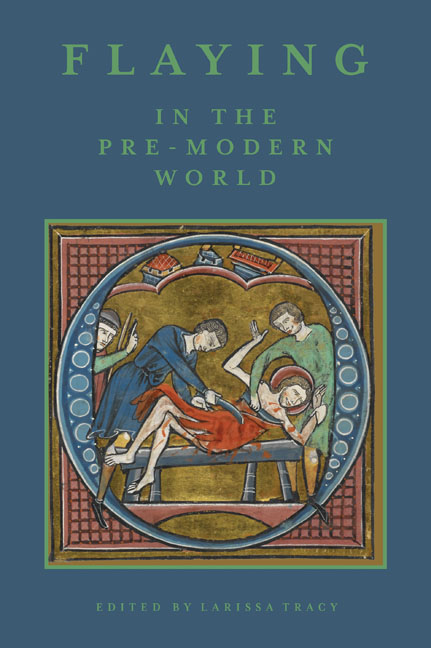7 - Masculinist Devotion: Flaying and Flagellation in the Belles Heures
Published online by Cambridge University Press: 21 May 2021
Summary
THE Belles Heures (1408–9) is the first Book of Hours that the noted bibliophile Jean, duc de Berry (d. 1416), commissioned from the gifted Limbourg brothers: Herman, Jean and Pol (all d. 1416). It is acknowledged in the history of art as a step on the way to the illuminators’ realization of their artistic powers, thought to culminate in their celebrated final work, the Très Riches Heures of Jean, duc de Berry (1413–16). The Très Riches Heures is among the most famous manuscripts in the world not only because of the degree of luxury it represents, but also because it fits a traditional art-historical narrative that privileges aesthetic preferences associated with the Italian Renaissance, such as the heroic nude and the Albertian window. When the Belles Heures is compared to the Très Riches Heures on these terms, it seems embryonic, experimental and eccentric. This bias in the art-historical narrative impedes interpretations that consider the powers and purposes of alternative aesthetics exemplified by the Belles Heures. The pictorial programme of this manuscript mingles beautiful martyrs that Martha Easton suggests ‘enable a transgressive sadoerotic response’, with bodies that do not seem to anticipate the idealized nudes inspired by Classical Greece: broken, bleeding, diseased and contorted bodies, strangely animated corpses and – a quality that has not been recognized in previous literature – the monstrous merging of humans with other people, animals and things. Such an affective aesthetic suits the purpose of a Book of Hours, which was to craft a better soul.
This extraordinary personal prayer book thus testified to the duke's piety at a time when claims of divine approval played a role in the violent civil wars – in which Jean, duc de Berry, was a key player – that rocked France in the period in which the book was made. Jean de Berry needed to shore up his reputation in response to his enemies’ frequent attacks, which (among other things) targeted his sexual behaviour, specifically his liaisons with young men of lower social status. Robert Mills suggests that an unusual miniature depicting a scene from the life of St Jerome where the blameless saint is tricked into wearing a woman's dress (fol. 184v) is a representation of sexual slander that would resonate with the duke under the circumstances.
- Type
- Chapter
- Information
- Flaying in the Pre-Modern WorldPractice and Representation, pp. 173 - 207Publisher: Boydell & BrewerPrint publication year: 2017
- 1
- Cited by



